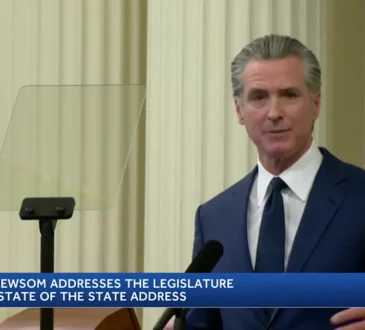
00:00 Speaker A
And when we look uh across the stock market, I mentioned tech. And we’ve we’ve been hearing, is this a bubble? Are we priced to perfection? We’ve seen this circular investment cycle among all the major banks. Where do you set with with tech right now? Are you optimistic?
00:20 Speaker B
So, um, if we think about AI specific tech. So let let’s use the magnificent 7 instead of just picking on on tech because it’s a pretty diverse uh sector. The one thing, it’s not an imminent concern, but maybe something that bears watching. Um, so Mag 7 as a share of overall S&P 500 CAx is about a third. So that’s that’s a pretty high percentage of CAx driven by just a small handful of companies.
01:14 Speaker B
Free cash flow growth for the Mag 7 has gone from more than 60% positive five quarters ago now into slight negative uh territory. This this boom, I I think the word bubble tends to get thrown around too much. This boom has been largely an equity financed boom, it’s come out of cash flows. Now that free cash flow growth has uh decelerated into slight negative territory and you’re starting to see more deals that get done with debt.
01:57 Speaker B
Um, it’s just kind of a back of mind thing to focus on. The the maybe good news is there’s less speculative fervor in those mega cap dominant names. The recent kind of hype cycle has gone into more esoteric micro small levels, like at the basket level Quantum and drones and and the meme stocks and those those have come off the boil a little bit in the last several trading days. But that’s where speculation that is that is very AI driven is now more concentrated in these kind of tiny little pockets as opposed to in the mega cap names that had been all the rage in the last couple of years.
02:35 Speaker A
And that’s super interesting to me because people have told me that this is why this is different than the dotcom boom because you have companies with really strong cash flows and balance sheets. And you were just talking about how we’re seeing more of this debt financing. I guess at what point do you think we’re going to start to see more of that? It is that only certain companies that are financing with debt?
03:03 Speaker B
Um those that have seen a uhh a decline in their free cash flow yields and so they can’t finance finance it out of uh out of cash flows. I would say, um, one of the keys here is there’s there’s a decelerating rate of earnings growth. But to your point, there’s more there there than was the case in the late 1990s. They really, the the high flyers actually had no denominator in the PE equation. So it was purely a price bubble. I think what we need to be more mindful of now is the earnings side and a point where maybe the expectations bar has gotten set a bit too high. And you could have one or two high-profile misses, even if in level terms, the growth rates are still strong. It’s uh, you know, I I’ve been doing this for almost 40 years and one of my favorite things to say about the market and as it relates to things like trends in earnings or trends in economic data, better or worse tends to matter more than good or bad. It’s human nature for us to think that’s still a really strong growth rate, but if it’s a decelerating pace, that’s something you’re mindful of. In the meantime, you’ve got an accelerating pace of earnings in an index like the Russell 2000. I would say avoid the lower quality no earnings part of that index, however.




